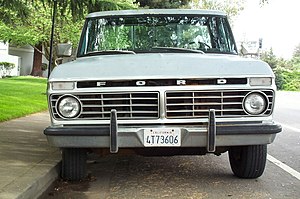by Kathy Brasby | Sep 27, 2013 | Hope
Many allusions come from Job’s story and yet we all wonder just what the meaning of the story is.
We’re told, for example, to have the patience of Job but was he so patient? He didn’t deny God but he did some griping.
What was the purpose of those friends and their advice? Why didn’t Job listen to them? Should he have listened? Did his wife have it right when she told him to curse God and die?
How could he, in the midst of his dilemma, craft a phrase that is now a part of well-known Easter hymn: “I know that my redeemer lives”?
And what do we make of the closing chapters of Job? Was God rebuking or instructing Job? Did Job do well – or forget his place?
I might write more on Job another day but I found an intriguing article this week that I want to share instead.
Scot McKnight offers some thoughts: And then God instructs (or rebukes?)…Job and us.
Like this:
Like Loading...
by Kathy Brasby | Sep 24, 2013 | Hope
Since my husband is an expert in measures and machines, he was the logical one to ask.
“How much does a Chevy S-10 pickup weigh?” I said.
“Oh, about 3200 pounds.” He was working on a game on his iPad so I didn’t get much of a look.

Ford pickup from the front (Photo credit: Wikipedia)
“And an old Ford half-ton pickup?”
“About 3500 pounds.”
“And a flatbed trailer?”
He still didn’t look up from his game. “About 1500 pounds. And that’d work. The Ford could easily pull a trailer with the S-10 on it.”
“No, the other way around,” I said.
And I had his attention. He’s a protective guy and he shook his head. “Oh, no, you’d never want to pull a Ford pickup with an S-10. Maybe across town if you went slow.”
“Well, I already did it.”
When we were first married, he might have berated my foolishness. But after all these years, his response was, “Oh,” and he went back to his game. He’s met some of my ideas.
I wish I’d known him when I launched the great idea of helping my brother. I owned the S-10; he had the Ford which died at my house.
We lived about 80 miles apart in those days and I figured I could bring his pickup home on a trailer.
Have you seen that Ford pickup commercial where the driver sees a boat on a trailer go by and realizes it’s his?
That was nearly me.
Visualize the dinosaur tail wagging a terrier and you’ll get the idea.
I made it home. On the interstate. At 40 mph. With the monster disguised as the Ford half-ton breathing hot on the back of my neck while it lurched toward the edge of the road every one of those 80 miles.
I get many ideas but let me assure you that this was not one of the good ones.
Like this:
Like Loading...
by Kathy Brasby | Sep 20, 2013 | Hope
Biblical stories use many strategies to convey a message, including ridicule. We’ve looked at humor before but let’s examine a few points of sharp humor in the book of Esther.

Haman Begging the Mercy of Esther, by Rembrandt (Photo credit: Wikipedia)
Early in the story, we meet Haman, a cocky official of the king. He expected everyone but the royal family (we assume) to bow down and pay homage to him. Even the royal staff had to do so – and this happened “because the king had commanded this to be done for him.”
When Mordecai, Esther’s guardian, refused to bow to him, Haman was filled with such rage that he plotted to destroy all of Mordecai’s people – the Jews. This was a great example of hyperbole. Why not give Mordecai some public service tasks or maybe even put him in the stocks for a day or two?
The drama increases with this proclamation but there is more humor coming. One night, the king asked Haman what should be done for a man who had pleased the king.
This question was a springboard to the huge misunderstanding. Haman assumed this man was him and so he crafted an elaborate parade to honor himself.
But the reversal came soon, when Haman learned that his moral enemy, Mordecai, was the man to be honored. And he endured further insult when the king instructed that Haman lead this parade honoring Mordecai.
The story continues and we find Haman at a dinner with Queen Esther and the king, a dinner he assumed honored him. Instead, his plot is unveiled and, in a desperate effort to plead with Esther, he is found in a compromising position by the king. Another reversal for proud Haman.
The gallows that Haman had built to hang Mordecai turned out to be the very gallows where Haman met his own demise.
These reversals propel the story to its triumphant conclusion, where the Jews were not destroyed but instead rose victorious.
Haman was the perfect foil – a proud, boastful man who tried to use his lofty position to destroy God’s people. Instead, he suffered humiliating reversals because of his own proud position.
He got his come-uppance and I can hear the early listeners whistling and jeering at just the right times as his story unfolded.
They got the humor of the story – and the meaning deepens as we get it, too.
Like this:
Like Loading...
by Kathy Brasby | Sep 16, 2013 | Hope
I am a careful reader and I did read that poster before I jumped in.
Free cats. On the wild side. The photos on the poster were of three lovely orange and gray cats. My son and I were running errands when I found this treasure.

English: Singapore – Cat scratching (Photo credit: Wikipedia)
We needed cats for our barn, which was constantly under attack from a squadron of field mice. I didn’t care that these cats were a little on the wild side. Better to hunt mice.
I found the girl with the cats. “Do you still have them?” I asked.
Her face should have clued me in. Body language says raised eyebrows, wide eyes and an open mouth mean surprise. “Do you want them?”
“Yes.”
“Great! I’ll tell my dad.” She scampered away and I turned to my son.
“I’ll finish up here and you go with them. We can put the cats in the car and go home.”
He followed the girl and I finished my work. When I walked into the parking lot toward our car, I spotted Son at the edge of a small group, a large cardboard box in the center.
The girl’s father snugged the last piece of shipping tape over the flaps on the top of the box as a bystander said, “If they can’t get air in there, they might die.”
The father stepped back from the box, which was tap dancing a bit, and brushed his hands together. “That wouldn’t be the end of the world.”
My son turned to me. “He had welding gloves on when he put the cats in the box.” Welding gloves are long leather armor against welding sparks. And apparently against cat weapons as well.
By now, I was near enough to hear scratching inside the box. A lot of scratching. The sort of demonic scratching that threatens to claw through trees and steel walls.
“A little wild?” I asked him.
Son shrugged. He likes cats and he hoisted the box into the back of the car. “It’ll be OK.” I watched the box shimmering with cat rebellion and muted yowls.
“What if they get through the cardboard?”
“I guess we open the doors and bail out ’til they escape.”
That was comforting.
As I turned back to the family that had advertised the cats, they were nowhere to be seen. What a shock.
And so we drove home. My kids as toddlers usually dozed off as soon as I put the car in drive – and so, apparently, did this cat trio. No sounds until we got to our barn.
We laid the box on its side in the middle of the building so the top faced away from us. We were fools but not that bad.
I peeled off the tape while my son stood guard. I’m not sure what his plan was if the cats did a u-turn. Well, maybe we were that bad of fools…
I had donned my own leather gloves and goggles before I lifted the flap. There was a pause before an explosion of orange and gray fur burst into our barn, across the floor, and out the back door. Followed by heavenly silence.
Son and I looked at each other and I brushed off my hands. “Well, that wasn’t the end of the world.”
But I do read a little more carefully these days.
Like this:
Like Loading...
by Kathy Brasby | Sep 13, 2013 | Hope
Biblical authors sometimes use connections between the Old Testament and New Testament to help pry open deeper meaning than at first reading.
An example is found at the end of John 1 where Jesus talked to some new disciples. They were impressed because he told one of them when he was sitting under a fig tree, before he came to to Jesus.
Jesus almost pooh-poohed their awe and said, “ “Very truly I tell you, you will see ‘heaven open, and the angels of God ascending and descending on’ the Son of Man.”

Jacob’s dream (c. 1639), by Jose de Ribera, at the Museo del Prado, Madrid (Photo credit: Wikipedia)
He was referring to Jacob’s dream in Genesis 28. Jacob, over 2000 years earlier, was on the run from his angry brother when he had a dream that a ladder extended to earth from heaven. Angels were going up and down the ladder.
God spoke to Jacob in the dream, making several promises to him including the pledge to stay with him.
Jacob awoke and set up a stone as a symbol of God’s presence, naming the place Bethel. Bethel means house of God.
Jacob’s Bethel was the place where heaven and earth met.
Jesus chose that event to declare that heaven and earth again met. This time, the presence of God wasn’t limited to a stone pillar. This time, Jesus was preparing his disciples for this connection of heaven and earth – which would be seen in him. Jesus was the new Bethel, the new Temple.
By connecting to an ancient story, John the author provided a deeper meaning.
Like this:
Like Loading...
by Kathy Brasby | Sep 10, 2013 | Hope
I had one of those coughs that made your toenails rattle and, after a morning of listening to my hacking, a co-worker gave me the evil eye. “That sounds like a smoker’s cough,” he said.
“I’ve never smoked in my life,” I said.
But I had to take it back. There was this once.
My father was a smoker for many years and, at age 6, I approached him after supper one evening. He was sitting at the dining room table with a cigarette in one hand, white smoke drifting like a lazy river toward the ceiling, and a glass ashtray before him.
He must have noticed my fascination because he gestured to me to come. “Would you like a puff?”
Yes, I would. I scooted up to him, excited to share this special moment. I lifted the white tube to my lips and took a long pull on the cigarette.
I’ll never forget what happened next. Dragon’s breath first roasted my tonsils before descending with white heat down my throat. My lungs were instantly seared and my stomach rolled with burning coals.
The scalding smoke slammed into my eyes and my nose filled with a smell of dead mice and scorched banana peels.
Even my toenails curled with the heat.
I panicked at that point, certain that my life was about to end. I spun and ran as fast as toasted legs could carry me into the kitchen. I stuck my head under the cold water faucet and tried to drown myself.
What else can you do when a dragon has unleashed its flames?
I survived, undoubtedly due to my quick thinking in rushing to the kitchen sink.
And, as the rushing water sluiced into my mouth dousing the fire, I had a single thought, which I’m sure my father had intended: one swallow of the dragon’s breath was more than enough for me.
Like this:
Like Loading...





